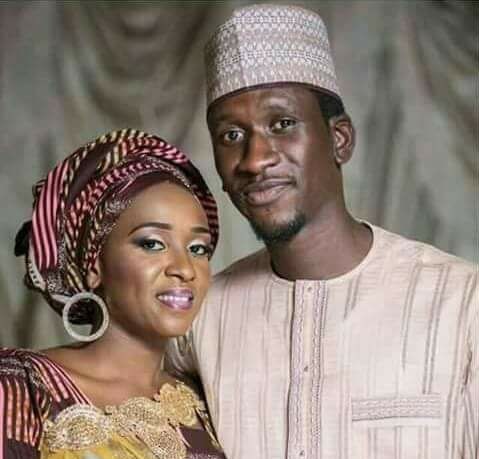Maryam Sanda is currently trending after President Bola Tinubu granted her a pardon alongside 174 others.
Here is everything to know, including the full details.
Who is Maryam Sanda?
In January 2020, Maryam Sanda was found guilty of premeditated murder (also known as culpable homicide) in connection with the death of her husband, Bilyaminu Bello, by the Federal Capital Territory High Court (Justice Yusuf Halilu). Bello was the son of Haliru Bello, the former national chairman of the PDP.
According to reports, the crime happened at the couple’s Maitama, Abuja, home in November 2017 after a domestic argument.
Her trial began amid several bail applications, which were repeatedly denied until March 2018, when she was eventually granted bail on health grounds.
Before the pardon, Sanda was detained at the Suleja Medium Security Custodial Center after spending six years and eight months.
Her pardon is controversial and has generated a lot of public interest, given the severity of the conviction and the death penalty.
About the pardon
On October 11, 2025, President Bola Ahmed Tinubu granted Maryam Sanda a presidential pardon (clemency) as part of a larger decision that saw 175 people receive pardons or sentence reductions, including notable figures such as the late environmental activist Ken Saro-Wiwa, Major General Mamman Vatsa, and other members of the “Ogoni Nine.”
According to the Presidency, the decision followed recommendations from the Presidential Advisory Committee on the Prerogative of Mercy, chaired by the Attorney-General of the Federation.
The pardon is often described in media reports as a “full pardon,” meaning that she is released outright rather than having her sentence merely commuted or partially reduced.
In Sanda’s case, the official statement says factors such as her good conduct in prison, remorse, and her role as a mother of two children were taken into account. Her family also pleaded for her release, arguing that her children’s welfare would be better served.
How the public reacted to the pardon
The pardon has sparked strong reactions across the country. On social media, a lot of people voiced their indignation and questioned how people who have been involved in different crimes could be freed.
On X, human rights activist Omoyele Sowore labelled her pardon as ‘hypocrisy,’ especially as Nnamdi Kanu, who wasn’t involved in any crime, was still in detention.
See some other reactions.
Maryam Sanda, sentenced to death in 2020 for the culpable homicide of her husband, Bilyaminu Bello, has been granted a pardon by President Tinubu. She served six years and eight months at the Suleja Medium Security Custodial Centre.
Her family earnestly requested her release,… pic.twitter.com/YbQaY4x0p0
— Imran Muhammad (@Imranmuhdz) October 11, 2025
Maryam Sanda attempted to murder her Husband about 5 times on the same night before she finally succeeded killing him, now a freed woman
Major S A Akubo who stole 7,000 assorted weapons from the military & sold same to militants also benefited from Presidential Mercy
🤔🤔🤔🤔🤔
— UNCLE DEJI™️ (@DejiAdesogan) October 12, 2025
The backlash over the recently issued Pardons from the President is absolutely justified. It doesn’t matter which angle you are analyzing it from, It is really bad optics.
Politically, Morally, and Institutionally.
— Man of Letters. (@Letter_to_Jack) October 12, 2025
How do the security agents who worked tirelessly on this case and refused to take bribe feel?
How do the prosecutors feel?
What then was the essence of all that hardwork and sacrifice?
Kai! //t.co/NnWUOzHe9R— Aisha Yesufu (@AishaYesufu) October 12, 2025
Section 175 of the 1999 Nigerian Constitution gives the President the power to pardon, reprieve, respite, or remit punishments. Such clemency is optional and frequently granted based on a gazetted committee’s recommendation.
Despite being constitutional, the use of presidential mercy can spark ethical and legal debates, especially when it comes to violent or capital offenses.


















Hello!! My name is Anu
I'm a passionate digital media strategist and the creative mind behind FabWoman. My goal is to inspire and empower millennial women across Africa to live their most fabulous lives. Through FabWoman, I create engaging content that covers everything from fashion and beauty to health and lifestyle. When I'm not working, you'll find me exploring the latest trends, enjoying good food, and staying fit. Let's make every day fabulous together!